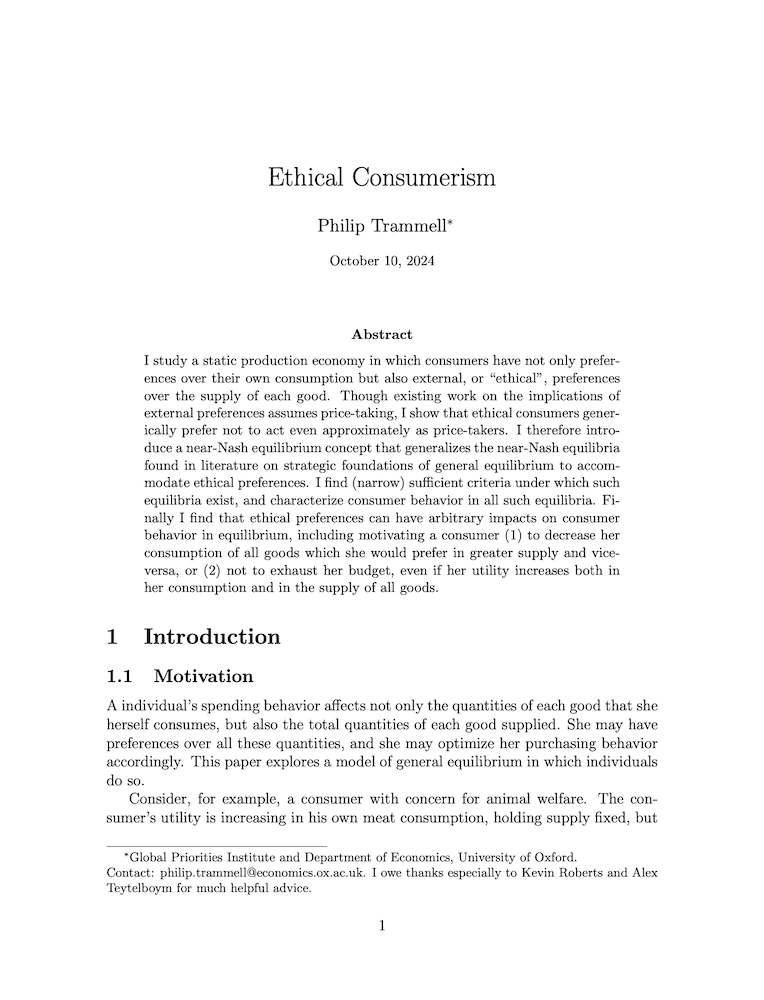Ethical Consumerism
Philip Trammell (Global Priorities Institute and Economics Department, University of Oxford)
GPI Working Paper No. 22-2024
I study a static production economy in which consumers have not only preferences over their own consumption but also external, or “ethical”, preferences over the supply of each good. Though existing work on the implications of external preferences assumes price-taking, I show that ethical consumers generically prefer not to act even approximately as price-takers. I therefore introduce a near-Nash equilibrium concept that generalizes the near-Nash equilibria found in literature on strategic foundations of general equilibrium to accommodate ethical preferences. I find (narrow) sufficient criteria under which such equilibria exist, and characterize consumer behavior in all such equilibria. Finally I find that ethical preferences can have arbitrary impacts on consumer behavior in equilibrium, including motivating a consumer (1) to decrease her consumption of all goods which she would prefer in greater supply and vice-versa, or (2) not to exhaust her budget, even if her utility increases both in her consumption and in the supply of all goods.
Other working papers
In defence of fanaticism – Hayden Wilkinson (Australian National University)
Consider a decision between: 1) a certainty of a moderately good outcome, such as one additional life saved; 2) a lottery which probably gives a worse outcome, but has a tiny probability of a far better outcome (perhaps trillions of blissful lives created). Which is morally better? Expected value theory (with a plausible axiology) judges (2) as better, no matter how tiny its probability of success. But this seems fanatical. So we may be tempted to abandon expected value theory…
Simulation expectation – Teruji Thomas (Global Priorities Institute, University of Oxford)
I present a new argument for the claim that I’m much more likely to be a person living in a computer simulation than a person living in the ground-level of reality. I consider whether this argument can be blocked by an externalist view of what my evidence supports, and I urge caution against the easy assumption that actually finding lots of simulations would increase the odds that I myself am in one.
Doomsday and objective chance – Teruji Thomas (Global Priorities Institute, Oxford University)
Lewis’s Principal Principle says that one should usually align one’s credences with the known chances. In this paper I develop a version of the Principal Principle that deals well with some exceptional cases related to the distinction between metaphysical and epistemic modality. I explain how this principle gives a unified account of the Sleeping Beauty problem and chance-based principles of anthropic reasoning…

